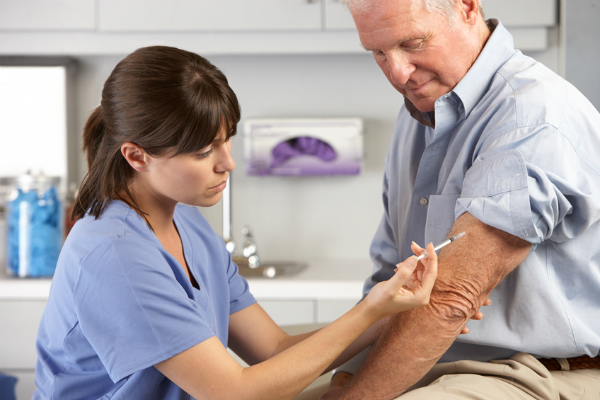A flu shot can help you avoid unpleasant symptoms and unnecessary hospital visits during flu season. Understanding what illnesses this vaccination prevents will help you protect your health during the fall and winter months.
The flu, or influenza, is a viral infection that commonly causes symptoms such as a sore throat, fever, fatigue, and muscle aches. While most people recover from the flu with rest and plenty of fluids, this illness can lead to hospitalization for potentially life-threatening complications. Getting a flu shot is an important part of staying healthy during flu season, but you may find yourself wondering, “What does it prevent?” The following information explains how you can be protected from multiple flu viruses, which will likely make you ask “Where can I find a community health center that offers these shots near me?”
How the flu shot works
The flu shot contains dead viruses that help your body build up an immunity to certain strains of the flu. About two weeks after receiving a vaccination, your body develops antibodies that are uniquely qualified to fight the flu strains contained in the shot. These antibodies can, in turn, fend off attacks from live versions of the viruses in the following months.
They work most effectively in adults and older children who are healthy but are typically not as effective for the following groups of people:
- Children younger than 2 years old
- Senior citizens older than 65 years old
- People with health conditions that weaken their immune systems
These people have a higher risk of developing flu complications, which makes it important for their family members to be vaccinated. Doing so helps lower their risk of getting sick and spreading the flu virus to those who are more vulnerable.
What the flu shot prevents
The dead viruses selected for a flu shot are predicted to be the most common flu viruses for the given year. Most shots are quadrivalent, meaning that they are designed to protect you from four different flu viruses. Depending on which viruses are spreading in a given year, a flu shot can lower your risk of getting the flu by up to 60%, according to the Centers for Disease Control and Prevention. It does not, however, provide you with protection from the following risks:
- Flu viruses contracted less than two weeks after getting the shot
- Flu viruses that were not included in the shot
- Rhinoviruses, which are associated with the common cold
- respiratory syncytial virus (RSV)
Flu shot misconceptions
A common misconception about flu shots is that they can cause you to get the flu. Because flu shots contain dead viruses, it is not possible to get sick from these vaccines. However, people who get sick after having the shot might have a cold or other viral illness that mimics the symptoms. These viral illnesses are typically more common during flu season, which can lead people to assume that they have the flu. It is also possible to have been infected with the flu shortly after your shot. Flu vaccines take roughly two weeks to become effective, making it possible for you to get sick a few days or even a week after being vaccinated.
If you are looking for an Arkansas community health center that offers these services near you, contact ARcare to set up an appointment. Our compassionate, professional staff is committed to providing our state with the best possible medical care.
